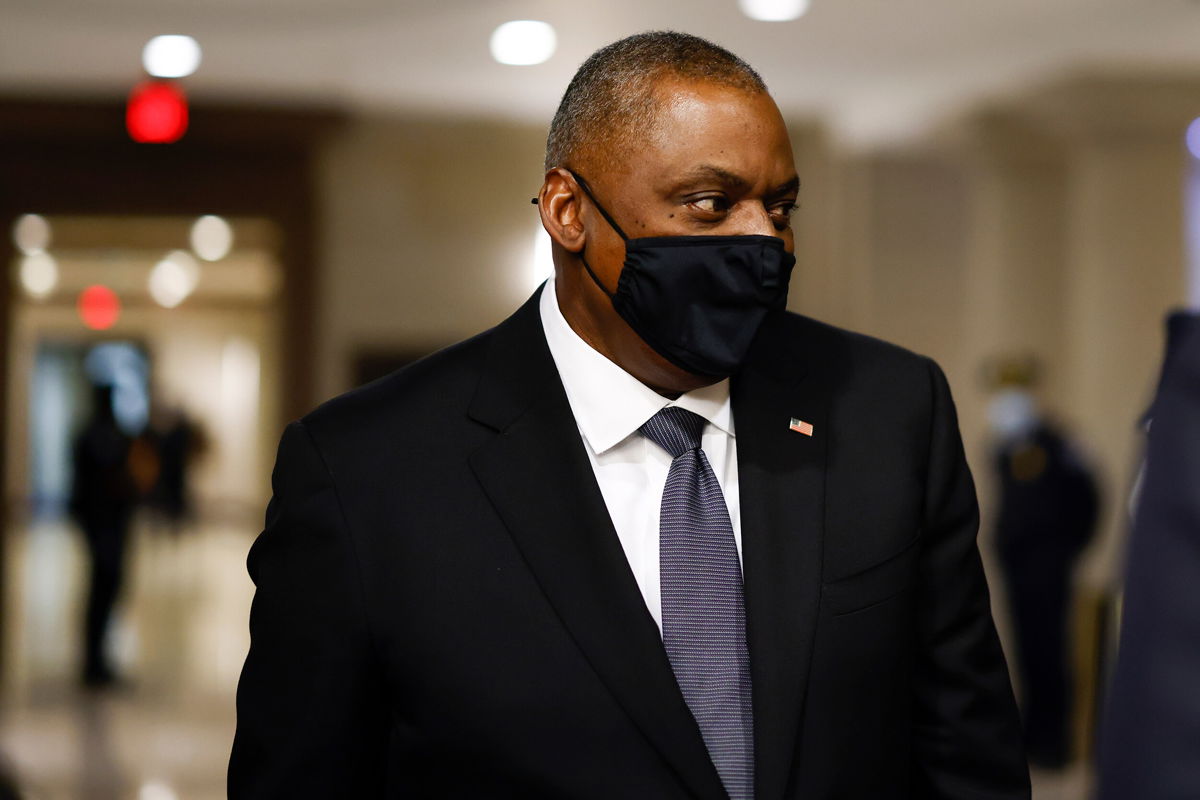Pentagon urges CEOs of largest defense companies to accelerate hypersonic weapons development as US lags behind China

Defense Secretary Lloyd Austin encouraged CEOs from more than two dozen of America's largest defense companies to accelerate hypersonic weapons development during a high-level meeting Thursday.
By Kristin Fisher, CNN
Defense Secretary Lloyd Austin encouraged CEOs from more than two dozen of America’s largest defense companies to accelerate hypersonic weapons development during a high-level meeting Thursday.
Two CEOs who participated in the meeting said Austin spoke of the matter in urgent terms and described China as a threat in this field.
“We need to anticipate how it’s going to evolve its capabilities. And we need to be out in front of that,” Austin said in the meeting, according to a Pentagon spokesman.
During the meeting, multiple CEOs described the need for more wind tunnels to test hypersonic vehicles as a “choke point in testing.” The US only has a handful of hypersonic wind tunnels, according to one CEO, while China has about 12 and “they’re building about one every six months.”
The CEO pointed to an industry-wide “fear of failure” in testing hypersonic weapons, echoing remarks by now-retired Air Force Gen. John Hyten in October. While the US had conducted approximately nine hypersonic tests in roughly the last five years, the Chinese had conducted “hundreds,” according to Hyten.
“We’ve decided that failure is bad,” Hyten said at the time. “Nope, failure is part of the learning process. And if you want to get back to speed, you better figure out how to put speed back into [sic] and that means taking risk and that means learning from failures and that means failing fast and moving fast.”
Top executives from Lockheed Martin, Raytheon Technologies, Northrop Grumman, Boeing, Leidos, Aerojet Rocketdyne, BAE Systems, L3Harris, and about a half dozen other defense companies were represented at Thursday’s meeting, which was chaired by Deputy Defense Secretary Kathleen Hicks. It was not classified, but participants agreed to meet in a classified session soon.
“We all need to get in a SCIF and do it face-to-face,” the CEO said.
Pentagon spokesman Eric Pahon said in a meeting readout Thursday evening that “participants identified a need to expand access to modeling capabilities and testing facilities in order to adopt a ‘test often, fail fast, and learn’ approach which will accelerate the fielding of hypersonic and counter-hypersonic systems.”
“These meetings with executives in key areas of innovation and modernization also help to strengthen relationships and employ a collaborative disruption approach to accelerate the development of cutting-edge capabilities and new operational concepts,” Pahon said.
Traveling at Mach 5 or faster, hypersonic weapons are difficult to detect, posing a challenge to missile defense systems. Hypersonic missiles can travel at a far lower trajectory than high-arcing ballistic missiles, which can be easily detectable. They can also maneuver and evade missile defense systems.
China and Russia’s advances and recent failed tests have led the Pentagon to inject more urgency into the US program and increase the resources they are devoting to hypersonic weapons development. The FY22 budget committed $3.8 billion to hypersonic research, an increase from the previous year’s $3.2 billion.
The US hypersonic industry has suffered problems and setbacks in recent months. In October, the Pentagon said a test of a hypersonic glide body failed due to a problem with the rocket propelling it to hypersonic speeds, and in April, a hypersonic missile failed to separate from a B-52H Stratofortress bomber during a test at Edwards Air Force Base.
CORRECTION: This story has been corrected to accurately attribute the characterization of comments made by Defense Secretary Lloyd Austin regarding China in his virtual meeting with CEOs. It has also been updated with additional information.
The-CNN-Wire
™ & © 2022 Cable News Network, Inc., a WarnerMedia Company. All rights reserved.